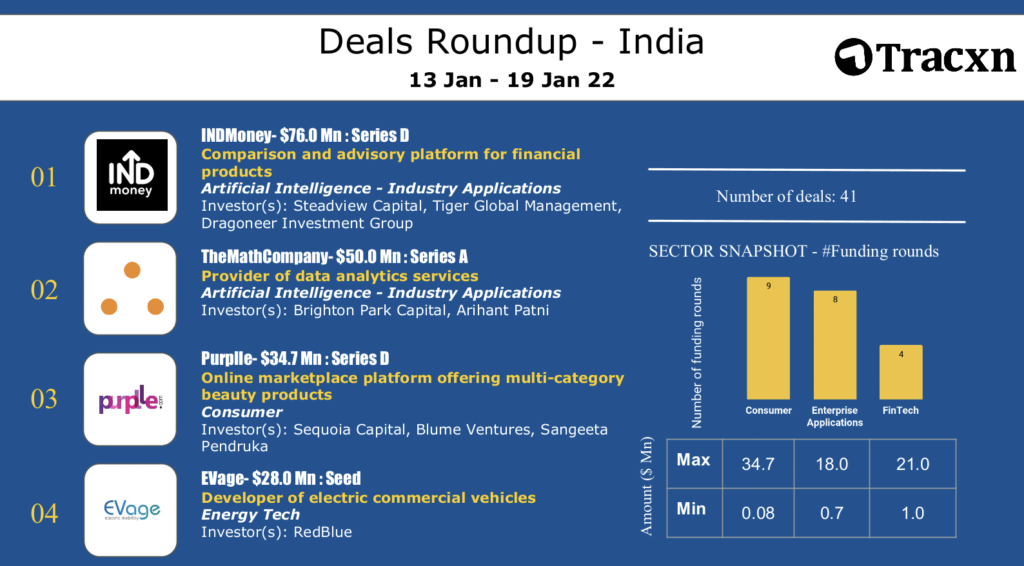Subscribe to our newsletter to read this first thing on Friday morning. This is the preview of what you will receive in your inbox.
For Indian edtech startups, which have grown in leaps and bounds by raising USD 6.1 billion from investors over the last two years amid the COVID-19 pandemic, the year 2022 has begun on a cautionary note. Although, the trouble started in December 2021, when a parliament member raised concerns over online education companies ‘ course content, predatory marketing practices, and unethical conduct. Earlier this month, over a dozen edtech firms came together and said they would adopt a self-regulatory code. However, a few days after the declaration, Indian regulators warned local colleges and universities to not offer online courses through edtech startups.
Elsewhere, local crypto and NFT startups have continued to be chirpy despite regulatory uncertainty due to the massive user and investor interest. Just recently, a local media conglomerate, Viacom18, launched an NFT marketplace Fully Faltoo, marking its entry in this niche but growing segment. For this week’s big read, KrASIA took a closer look at the NFT sector.
The Big Read
Inside India’s nascent NFT sector
NFTs, or non-fungible tokens, are digital assets that use blockchain technology to represent the ownership of both digital and physical items. These tokens can represent anything from art, memes, music, and GIFs to even full-length feature films, event tickets, real estate, and more.
While NFTs have been around for a couple of years, they witnessed a meteoric rise in 2021. This was mainly driven by celebrities, major brands, and renowned traditional art auction houses like Christie’s entering the space. In 2021, the global NFT trading volume soared to over USD 23 billion.
Although India is behind countries like Japan and the Philippines in NFT adoption, the trend is gaining traction in the country. NFTs paved the way for local artists to reach an otherwise inaccessible audience. Traditional art galleries, with their centralized approach, often catered to a closed circuit of artists and collectors.“NFTs create a space for digital artists who were previously working for agencies or brands to go independent and share their version of the story,” said Vimal Chandran, a visual artist based in the Kerala state of India, who sold his first NFT on India’s WazirX NFT marketplace in June 2021. “NFTs are not just about art; it’s about the token, and the possibilities of using that ecosystem are endless.”
Besides, it’s not just artists who are joining the NFT craze. According to Ishita Srivastava, a research partner at emerging technology investment firm Woodstock Fund, nearly every entertainment organization and talent management agency has been looking into NFTs “to connect with their fans” and “create more avenues for monetization.”
The Weekly Buzz
1. Indian regulators bar higher education institutions from partnering with edtech firms. In a move that implies the Indian government’s tightened grip on local edtech players, the University Grants Commission (UGC) and the All India Council for Technical Education (AICTE)—the two top governing bodies for higher education and technical education, respectively, which fall under the Ministry of Education—issued public notices that bar local colleges and universities from working with higher education startups that offer master’s and degree courses online.
2. India doubled number of unicorns to 90 in 2021: Report. India—the third-largest startup ecosystem in the world with 60,000 firms—added 46 unicorns in 2021, doubling the number of billion-dollar companies to 90, as per a new report titled “India Tech Unicorn Report” by Mumbai-based venture capital Orios Ventures. In comparison, the US added 254 unicorns in 2021, taking the count up to 487, while China saw 74 startups turning into billion-dollar companies, which shot up the total number of unicorns in the country to 301.
Top Deals This Week

